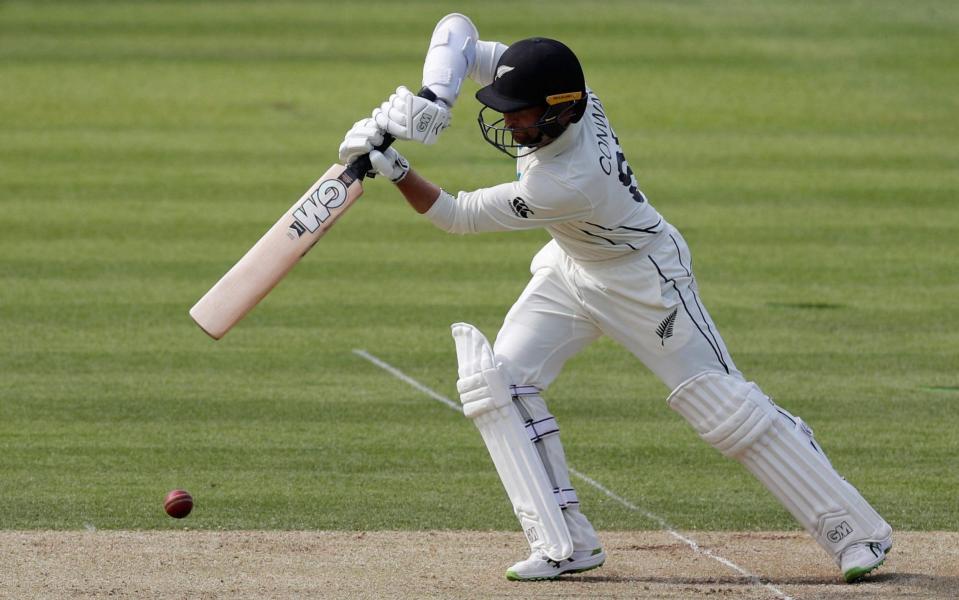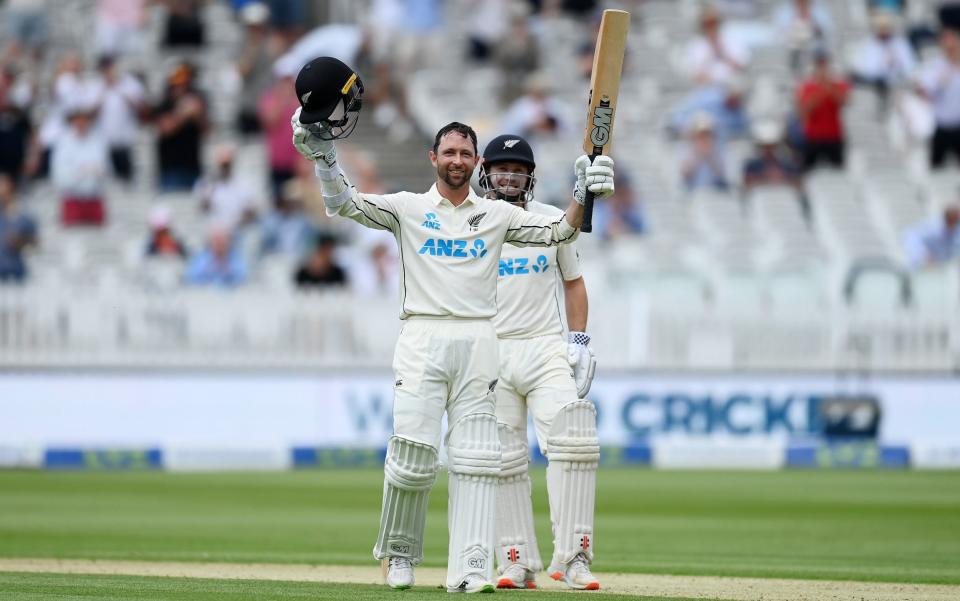New Zealand have copied England's old trick - boosting their ranks with a top-class South African

Now you can understand how the England players felt during the Brisbane Test in the 1982-3 Ashes.
A tough, nuggety South African lefthanded opening batsman crushed the life out of England - for Australia. Kepler Wessels scored 162, twice as much as anyone else on either side, English or Australian, in that Brisbane Test. Beating Australia was possible, the England players thought; beating Australia AND South Africa was not.
Similarly, England are discovering that defeating New Zealand, as they have frequently done in the past, is one thing. Completely different is defeating New Zealand when they are reinforced by Devon Conway who, like Wessels, emigrated from South Africa to represent another country. After scoring 200 without being dismissed by a bowler, Conway has given New Zealand every chance of winning the opening Test on an increasingly uneven pitch.
New Zealand have reached where they are today - peerless at home and doughty scrappers abroad in Tests, while they always reach World Cup semi-finals - by making the most of the little they have. In sport, if not the global economy, there are some advantages in being small-sized - like the need to be shrewd in recruiting from outside.
Conway is one of four players born in southern Africa in this New Zealand team, along with B-J Watling, Neil Wagner, and Colin de Grandhomme, who began his career in Zimbabwe rather than South Africa. Having an allrounder such as de Grandhomme makes such a difference, as England have already discovered in the absence of Ben Stokes.
Through having a small player-base - only six first-class teams - New Zealand have traditionally had a gap or two in their line-up. For more than a generation - since Bruce Edgar and John Wright around 1980 - they have lacked an opening partnership of real Test class, but now they have one in another pair of lefthanders, Conway and Tom Latham.
In scoring 200 Conway went up and down the gears, adjusting to circumstances, like a veteran. Though a debutant, he is almost 30, having had to spend four years qualifying for New Zealand. Throughout he 'left' the ball well. In between whiles he was worked over by Mark Wood, but not worked out.
New Zealand’s thinktank did their research well when Conway’s name came up as a potential recruit. He was born and brought up in Johannesburg, and if you are looking for a top-class opening batsman, that’s as good a place as any in the world to start.

Graeme Smith attended King Edward in Johannesburg, for one world-class opener. Down the road, St John’s has nurtured not only Conway but Billy Zulch, who scored two centuries on South Africa’s first Test tour of Australia in 1910-11 (a good effort after being brought up on matting); Bruce Mitchell, who opened in more than half of his 42 Tests and ended up as South Africa’s highest run-scorer during apartheid.
This background became relevant when Conway ducked into Wood’s first two bouncers. Any decent batsman brought up on bouncy pitches in Johannesburg has to raise his wrists to pull and hook downwards. Unlike Henry Nicholls, Conway did so, until he top-edged the six to bring up his 200.
But England are the last country that can complain about South African imports. Of the 12 South Africans to score a century on Test debut, only half have done so for their native country, and of the other six, four did so for England (Andrew Strauss, Jonathan Trott, Matt Prior and Keaton Jennings), in addition to Wessels for Australia and Conway for New Zealand.

 Yahoo Sport
Yahoo Sport 





































